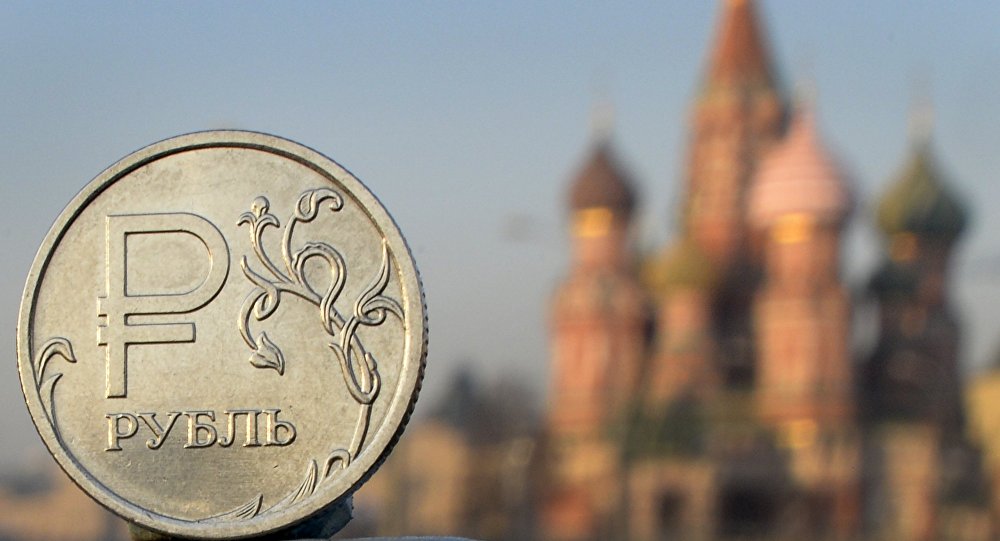The ruble may be become one of the most attractive currencies after the United Kingdom voted to leave the European Union. The trend may continue in both the short and long term.
After the Brexit vote, the Russian ruble has become more attractive in the short and long term perspectives.
“Ruble looks good even in the long-term run, from 6 to 12 months, because oil is not expected to be seriously affected by Brexit,” Per Hammarlund, chief emerging-market strategist at SEB SA in Stockholm, wrote in an e-mail to Bloomberg.
He also suggested that in the short-term perspective investors may be interested in Turkish lira and South African rand.
Last Friday, the results of a referendum in Britain revealed that 51.9 percent of the residents voted for the country’s withdrawal from the EU. The results sparked a drop in stocks and many currencies. The British pound hit a record low, dropping below 1.35/$1 for the first time in the last 30 years.
At the same time, the ruble strengthened amid climbing oil prices and exporters buying the currency to pay taxes, as Morgan Stanley predicted the vote results would have a limited impact on Russia.
“Traders are realizing that Brexit is unlikely to have a major effect on Russia and oil is trading at comfortable levels,” Artem Roschin, a currency trader at Aljba Alliance LLC in Moscow, told Bloomberg. “The ruble is curbing its declines because today is a big tax payment day.”
On Tuesday, the Russian currency advanced to 64.18 against the dollar. If the trend continues ruble would hover at 63.5-64/$1 and is likely to rise to 60-61/$1, TeleTrade analyst Anastasia Ignatenko was quoted as saying by RBK.
The ruble was one of the most stable assets amid the Brexit vote, Tom Levinson and Iskander Lutsko, strategists at Sberbank CIB, noted in a report.
“Currently, investors see developed markets as more unstable for investments since they have been rapidly growing over the past several years. Investors fear that if there is turmoil in Europe there would be a big drop in those markets. Russia and other developing markets are more attractive now,” Yaroslav Podsevatkin, head of the trading department at the investment company ATON, told RBK.
Hammarlund suggested that European leaders would calm the markets to decrease uncertainty.
“I think that appetite for emerging markets will get stronger, at least in the short-term run,” he added.
Since the beginning of the year, the ruble has been in demand among investors. It has strengthened by 14.7 percent. In the week ended on June 19, American hedge-funds raised their bets on ruble by 50 percent, the biggest in the last three years.
Hedge-funds and speculators have been optimistic about the Russian currency, according to the United States Commodity Futures Trading Commission (CFTC). In the week ended on June 14, the spread between long and short positions in ruble increased nearly 50 percent, to 6,227 against 4,178 in the previous week.
Furthermore, bonds of such countries as Russia and Brazil are likely to become havens for investors, amid the political turmoil caused by Brexit, according to Bloomberg.
Before the vote, advanced economies played the role, but now the situation may change, exposing investors to greater risks. Emerging markets are becoming increasingly attractive for investors.
“Brexit has sent the pound into free-fall and left investors scrambling to understand how the weakened EU will affect Europe’s economic and political future,” the article read.
“You can certainly make the case that some emerging markets are now safer than parts of the developed world,” Sergei Strigo, head of emerging-market debt at Amundi Asset Management in London,told Bloomberg.
He added that he is considering additional investments into Russian and Brazilian debt.
“It’s best to stay away from European assets due to the uncertainty, and it’s worth looking at developing markets, where Russia and the ruble look quite attractive,” Yury Tulinov, head of research at Rosbank PJSC in Moscow, said. “At a time when the European integration is breaking apart, a relatively isolated Russia looks like a safe haven for investors.”
According to Jan Dehn, head of research at Ashmore Group Plc, sanctions have helped protect Russia. They have forced Moscow not to rely on US and European banks, thus making the Russian economy “relatively insulated.”
“The volatility in the Russian market last Friday shows that the Russian economy has worked out some protective mechanisms during the years of sanctions. For example, the limited interest of foreign investors to Russian assets saved the economy from turbulence. Brexit may also have positive effect for Russia. It may provoke a division within the European Union on sanctions against Russia. As a result, the sanctions would be eased,” analysts at Sberbank CIB suggested in a report.
